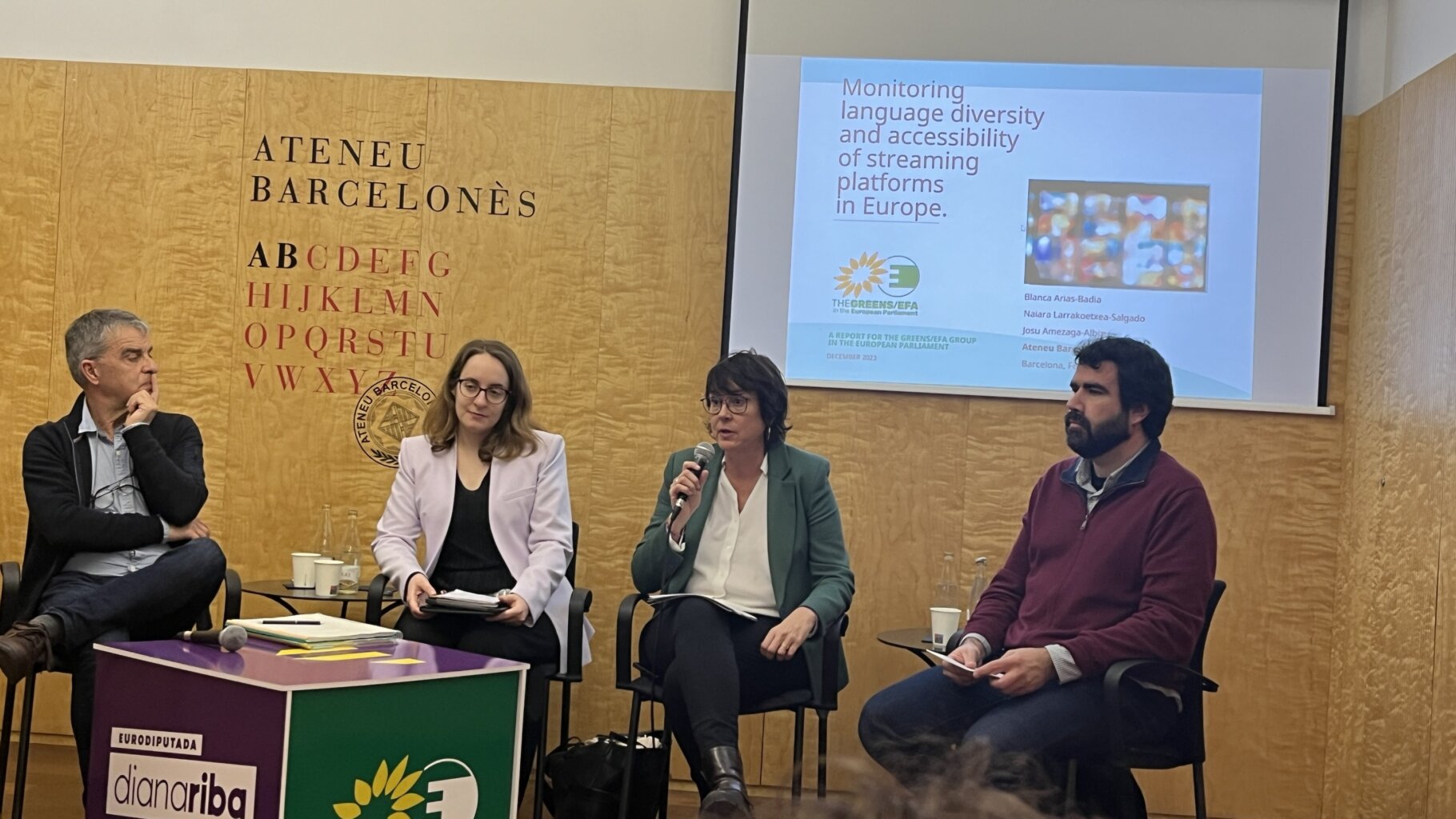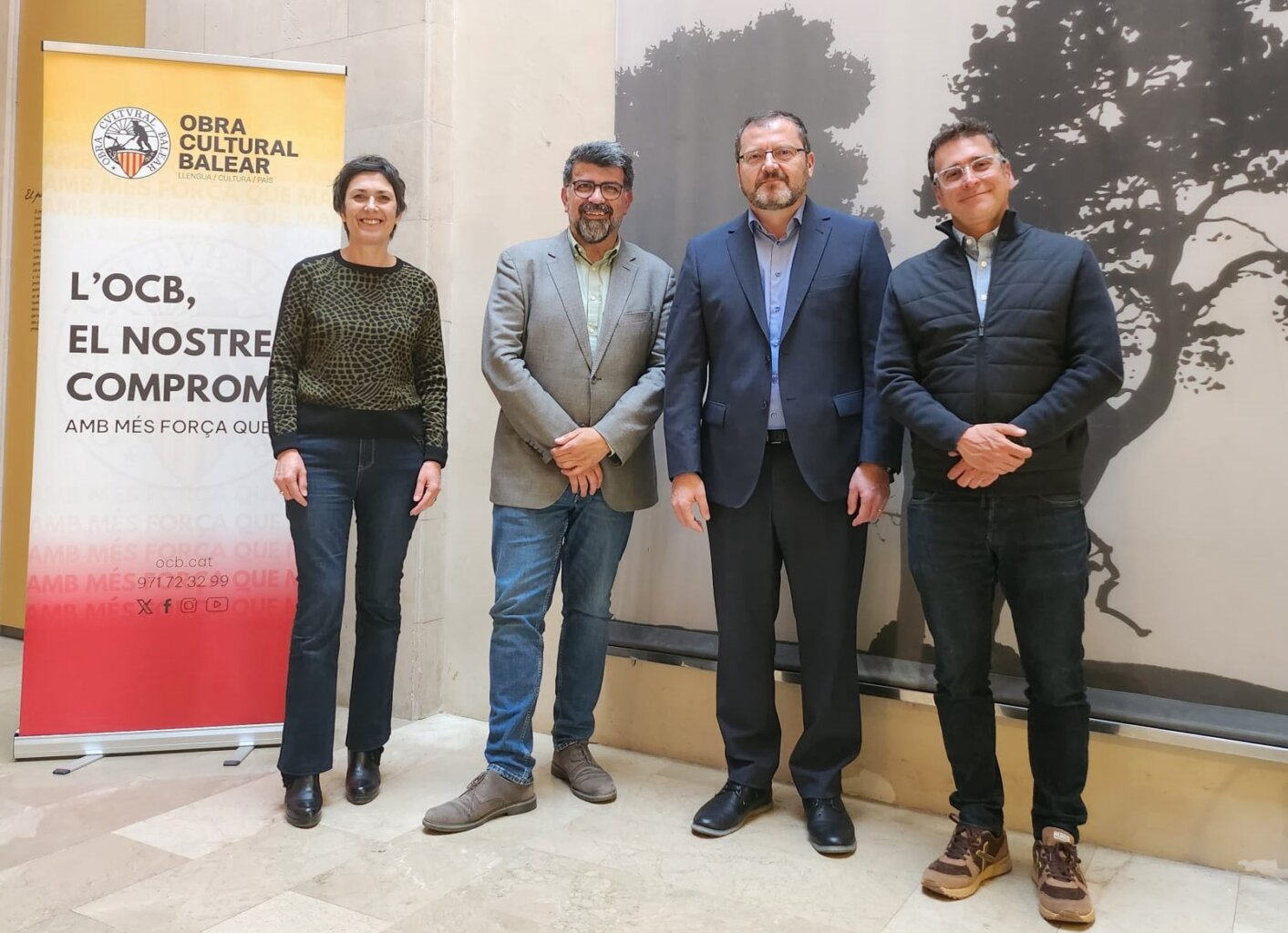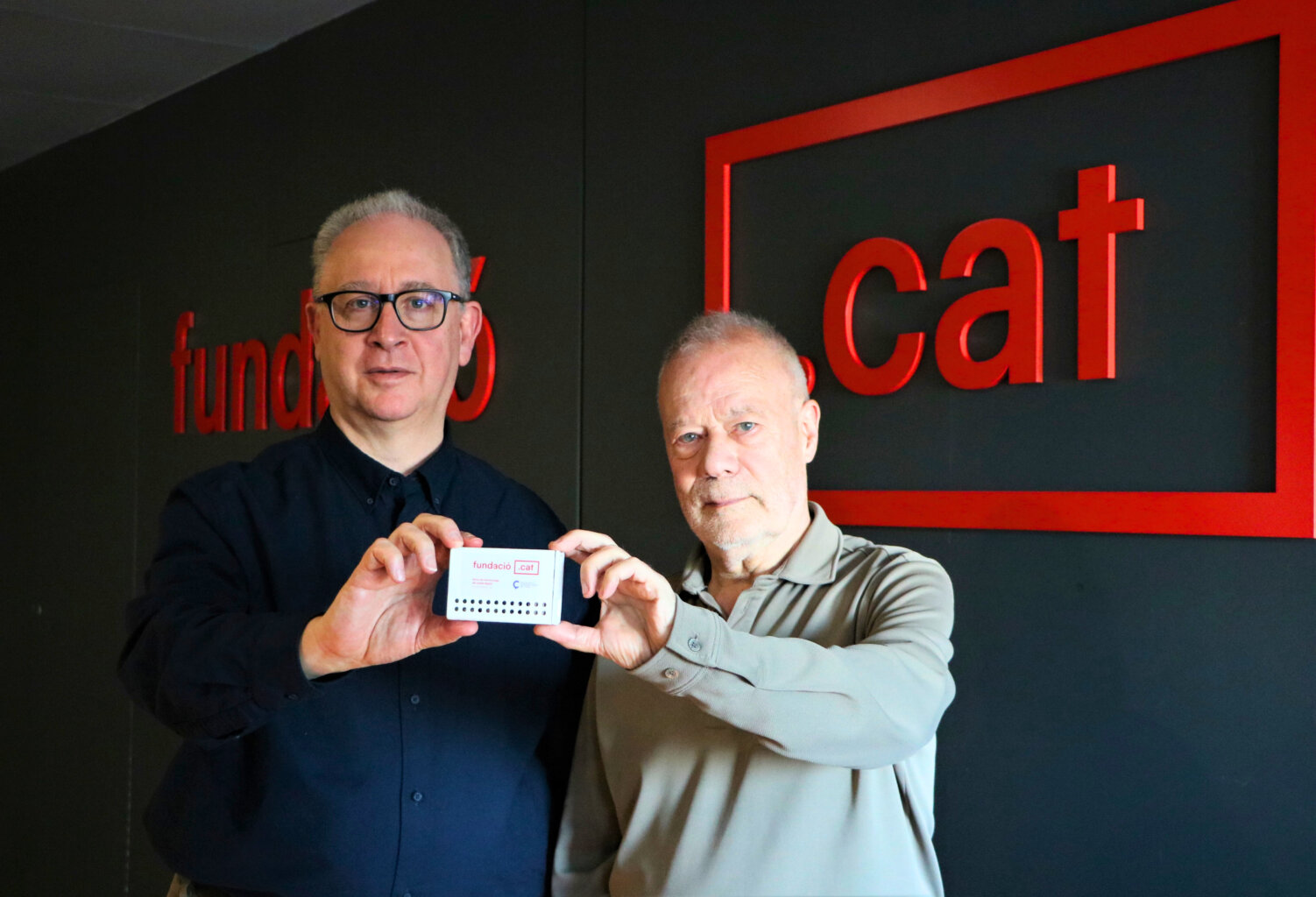Linguistic Diversity on Streaming Platforms in Europe

Yesterday, the ERC MEP Diana Riba; the Doctor in Social Communication, Josu Amezaga-Albizu; and the trustee of the .cat Foundation, Àlex Hinojo, presented the report on linguistic diversity on streaming platforms in Europe.
The analysis reveals a landscape of significant disparities and raises questions about cultural diversity in this space. Just as Anglo-Saxon audiovisual content maintains its hegemony over production in Europe and other parts of the world, English clearly predominates in the linguistic offering of these platforms. This occurs despite the fact that, unlike the origin of productions, the number of languages in which a product can be offered is not fixed and has no limit beyond the global number of languages.
The issue of linguistic diversity on platforms also affects official and state languages. An example is Lithuanian; although platforms offer content in Lithuania, they do not offer any content in its language.
Only five of the minority languages protected by the European Charter for Regional or Minority Languages are present on video-on-demand platforms: Catalan, Basque, Galician, Luxembourgish, and Welsh. However, this access is very limited and unequal, with emphasis on the offering in three minority languages of Spain, especially Catalan. Nevertheless, this does not obscure the fact that these languages have millions of speakers and have a very unbalanced presence in the available content.
The presence of content in Catalan and Basque is much lower in content outside of Spain. Very few of these contents are accessible in French territory, although there are linguistic communities of these languages there.
Regarding audio description, it is scarce in all languages, but especially in languages other than English. The lack of audio description hampers access to cultural products for people with visual disabilities and, therefore, can be interpreted as inherently discriminatory.
Overall, the offering in English is higher than the offering in the main local languages in almost all analyzed countries. This is true for both audio and subtitles. The only exception found is Amazon Prime when it comes to the strongest languages: German, Spanish, Italian, and French.
As Àlex Hinojo remarked at the presentation, “There are 40 million Europeans who have a minority language as their mother tongue and 80 million who have some sensory diversity, making this report very important. Societies like Catalonia and the Basque Country have long suffered this marginalization.”
This report highlights the need for regulation by the European Commission to ensure linguistic plurality. In the words of Diana Riba, “Having data is very important: with this study, the idea is to demonstrate that it is possible to monitor languages despite the lack of transparency from streaming platforms. With this, we can push Europe to show that it is possible and that we must do it.”


